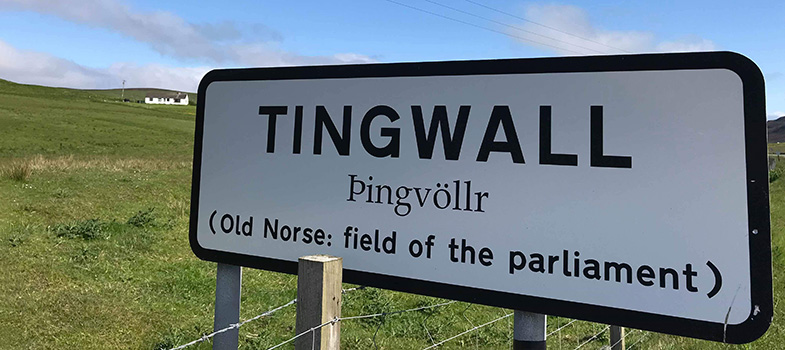8.2 The Sport of Gowf
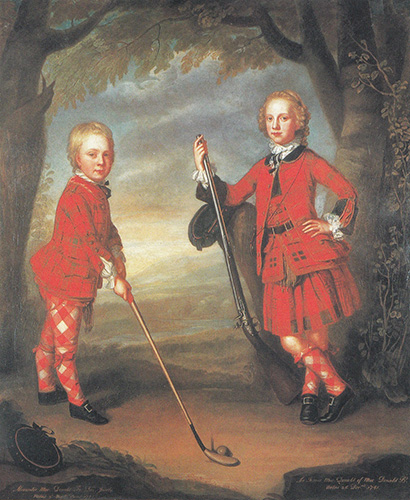
Golf is a stick and ball game played outdoors. The object of the game is to drive a ball, in as few strokes as possible, into a small hole. A variety of clubs of differing types can be used in this endeavour. The modern game is seen as a Scottish invention, although what is now played in the Netherlands has linguistic evidence that people there played a similar sport to modern golf.
Activity 5
In this activity you will engage with some key Scots words related to the game of gowf. The first Scots word and example sentence for you to learn are:
Gowf [Tip: hold Ctrl and click a link to open it in a new tab. (Hide tip)]
(another spelling as seen in the example sentence is gouf)
Definition: The game of golf, played first in Scot. in the 15th c. and popularised in Eng. about 150 years later. n. A dull blow, a hit, slap, buffet
Example sentence: “When the expresse came to him [King Charles I] with letters giving accompt of the Irish Massacre, he was playing at the gouf in the Links of Leith.”
(Wodrow, Analecta, 1842)
Part 2
Click to hear the sentence above read by a Scots speaker.
You can then make your own recording and play it back to check your pronunciation.
Transcript
Listen
When the expresse came to him [King Charles I] with letters giving accompt of the Irish Massacre, he was playing at the gouf in the Links of Leith.
Model
When the expresse came to him [King Charles I] with letters giving accompt of the Irish Massacre, he was playing at the gouf in the Links of Leith.
Language links
There are interesting language links with the Scots word gouf or gowf, which relate to the two definitions of the word. You can see that whilst one is applied to the game itself, the other is a noun meaning a blow or a slap. It is possible to see how this word was used in other sports which struck a ball.
Please note that the word gowf or gouf is an example of a word that has close links to languages spoken in other countries. In the Netherlands there were two games called kolf or colf. The Dutch word colve means a stick, club or bat. The Dutch had the word kolf for a club and kolf-bal - a ball for club games. Gouf or gowf is also related to the Old Norse kolfr meaning the clapper of a bell.
The main difference in the sports is that Scots played theirs as an outdoor game on links courses and struck the ball towards a hole in the ground. In the Netherlands it seems that the ball was struck towards an above-ground target like a tree, a stake or sometimes a hole.
There is a useful and very famous related word to gouf in Scotland:
Definition: The sandy undulating ground, gen. covered with turf, bent grass, gorse, etc., which is freq. found near the sea-shore on a flat part of the coast, and is often common ground belonging to the nearest town.
Again, there are interesting Language Links here:
The word links is related to the Old English word hlinc meaning rising ground or a ridge. In the Scottish use of the term, it mostly refers to the undulating dunes seen at the seashore. It appears often in Scottish place names such as Bruntsfield Links, Dornoch Links and the Links of Montrose. The term has come to mean ‘golf course’ for many people.
The reason for the use of links for the game of gowf is entirely pragmatic. The soil of links is sandy and unsuitable for arable farming. It is likely to be on the coast, where the populations of most countries lived until the Industrial Revolution created cities near primary resources for industries such as coal and iron. Grazing animals could keep grasses cropped and rain was not a problem, as the sandy soil drained very quickly – ideal conditions for playing gowf.
Please note that the Netherlands and the east coast of Scotland have strong cultural connections through trade. It is not surprising that the two countries share a history of stick and ball games. Look at pictures of east coast towns like Culross to see a strong Dutch influence in architecture.
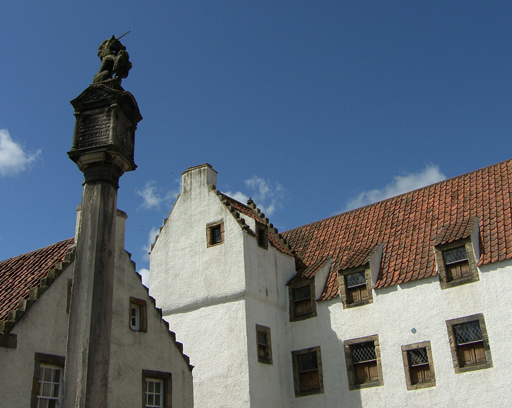
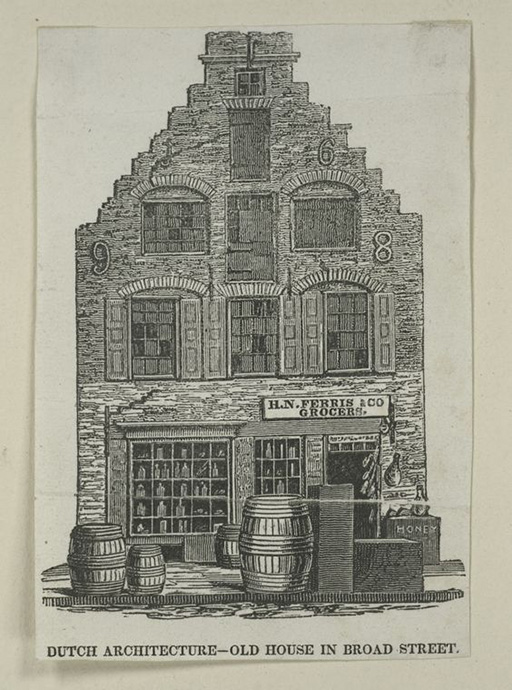
Until the 1930s, most golf clubs came from Scotland. They had predominantly hickory shafts and leather grips and there was no limit to the number of clubs a golfer could use. They were each named with a Scots word. However from 1939, the Royal and Ancient Golf Club of Saint Andrews (R&A) introduced a rule that a player was only allowed a set of 14 golf clubs. The clubs were numbered and each was of an agreed type and usage e.g. putters or drivers. As the R&A were the supreme arbiters of the rules of the Game outside of the Americas, it meant that, ironically, usage of the Scots words for clubs declined.
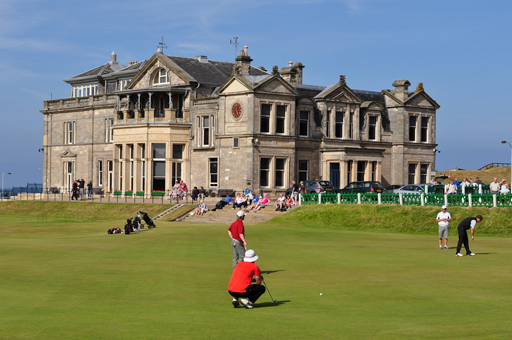
Activity 6
In this activity you will learn some Scots names for the most commonly used golf clubs.
Match the descriptions of the clubs with their names by dragging these to the correct place.
You may want to use the Dictionary of the Scots Language to help you. But maybe you have heard these words before and do not need the dictionary at all?
Using the following two lists, match each numbered item with the correct letter.
Mashie
Niblick
Jigger
a.n.[′mɑʃi] 1. An iron golf club introduced c.1880 and used for approach shots, having a straight sole and face with the face at a medium angle to the shaft.
b.A golf-club with a small, round, heavy head, and a strong shaft, designed for getting the ball out of an awkward or constricted position, corresponding to the No. 5 iron.
c.n.2 An iron golf-club, popular at the beginning of this century, corresponding to the modern no. 4 iron.
- 1 = a
- 2 = b
- 3 = c
Answer
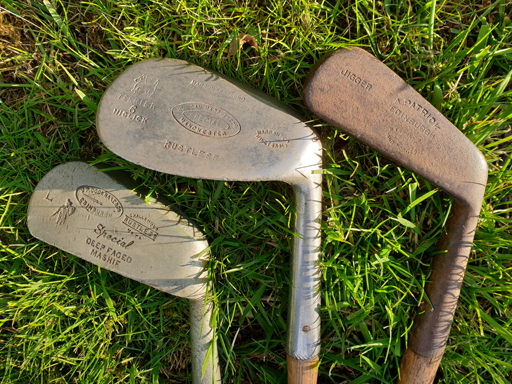
8.1 The Sport of Curling
